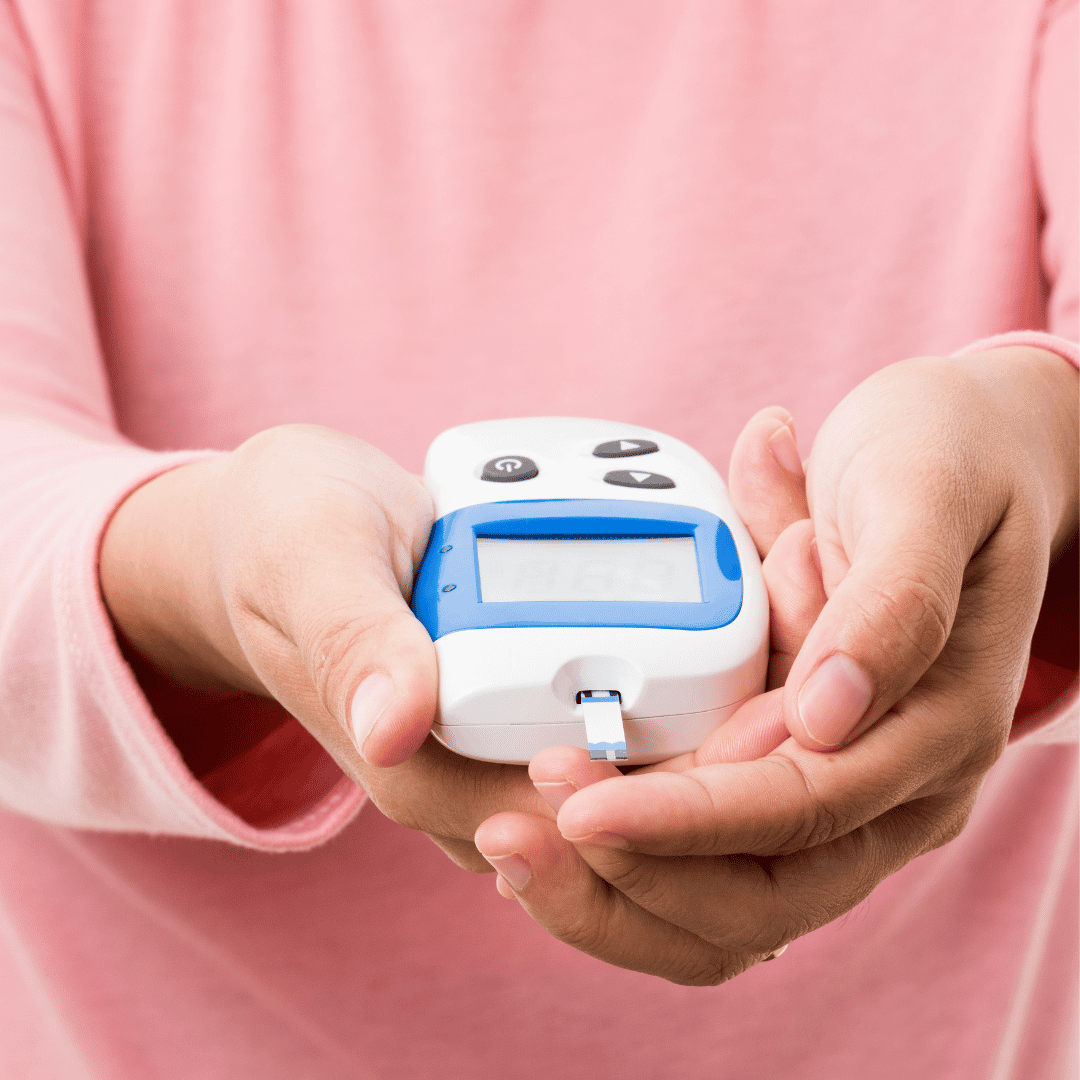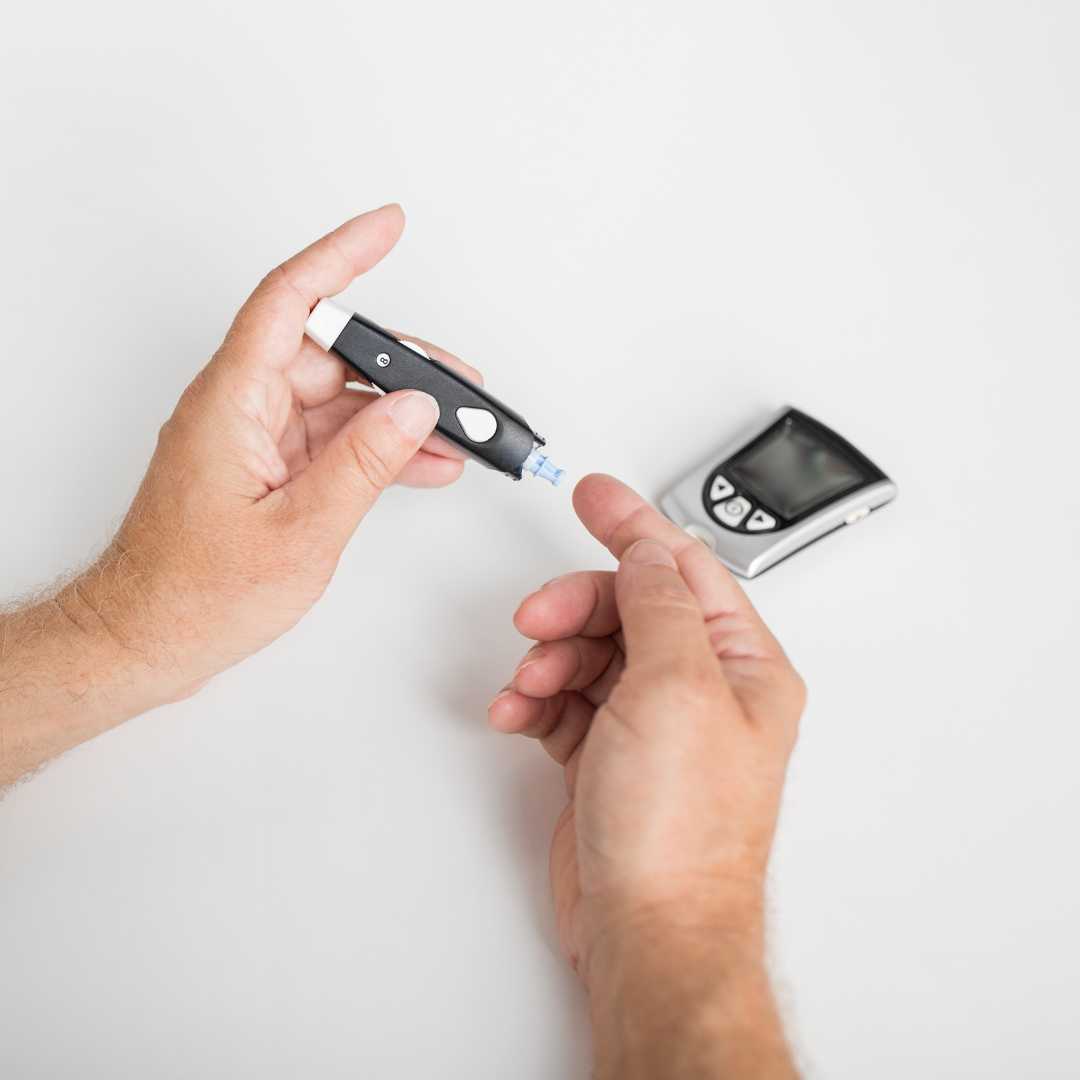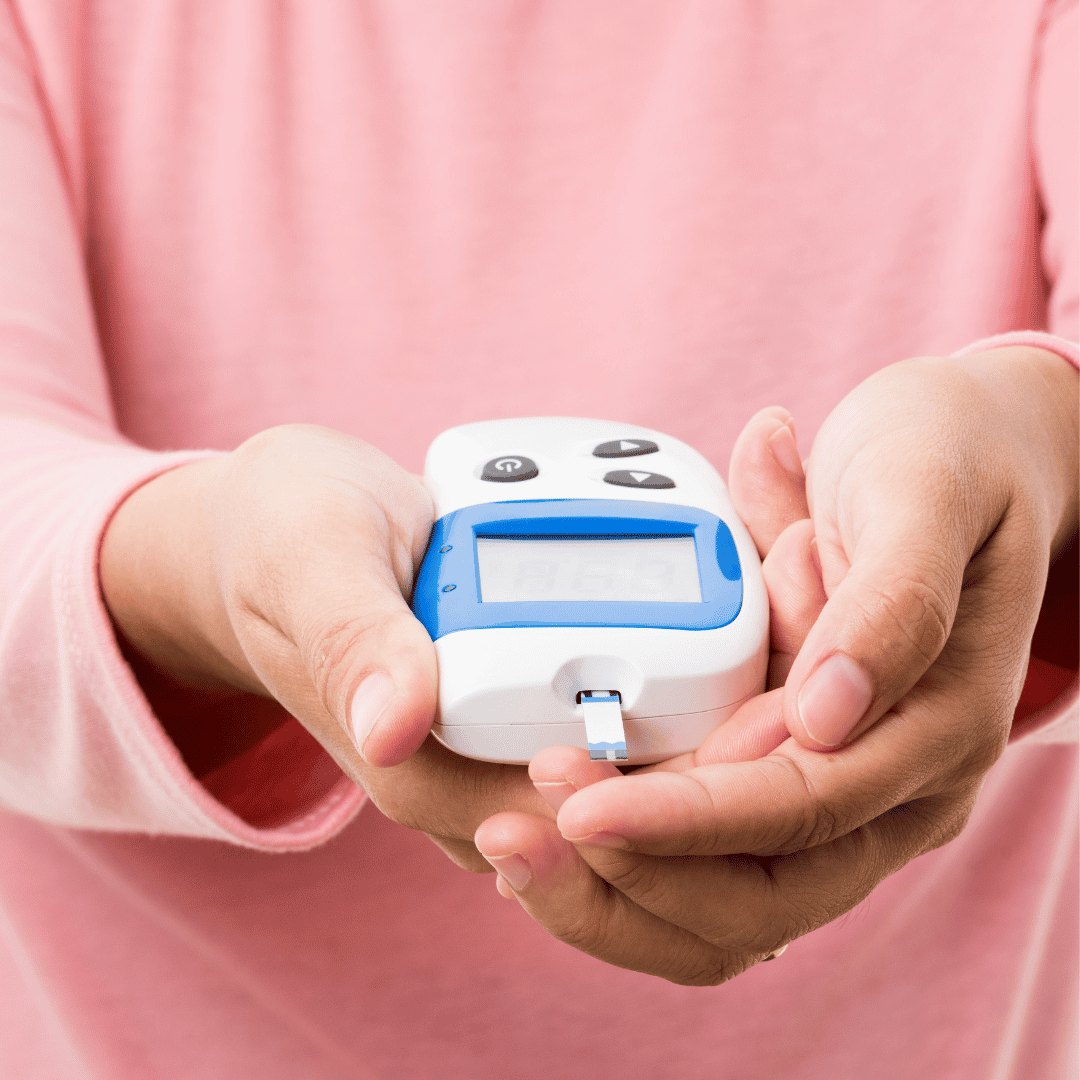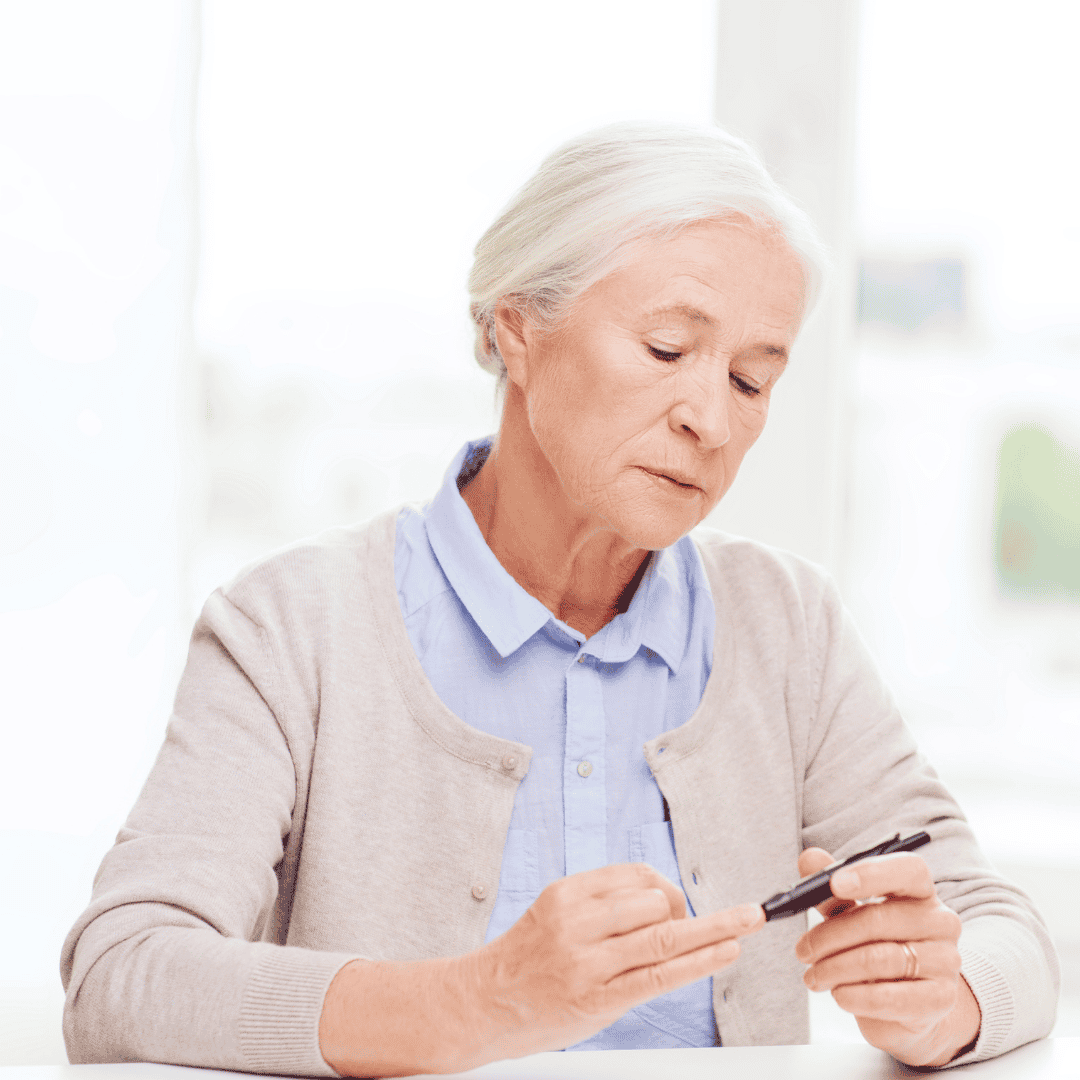
NeuroGen Brain and Spine Institute
NeuroGen Brain and Spine Institute in Mumbai, India
NeuroGen Brain and Spine Institute Profile Overview
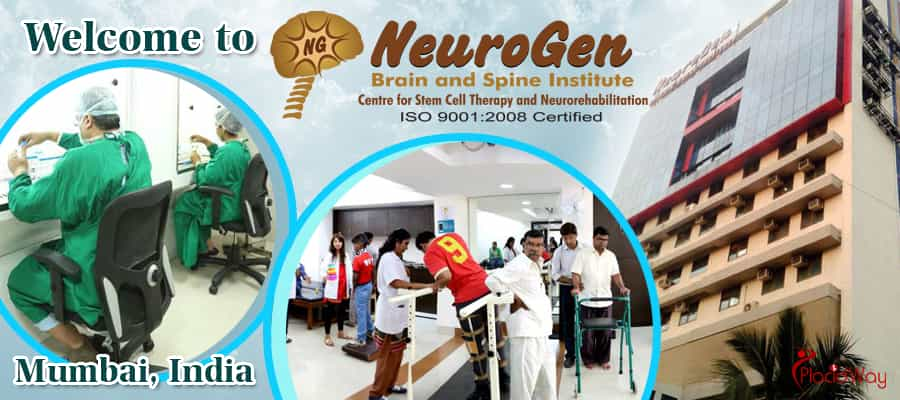
Welcome to NeuroGen
Diseases resulting from degenerative changes in the nervous system markedly impact the lives of millions and pose growing public health challenges. The prevention and treatment of these neurodegenerative disorders represents critical goals of medical research today and is the mission of the NeuroGen Brain and Spine Institute.
At NeuroGen Brain and Spine Institute we provide a ray of hope to people who have none and thereby increase the quality of life. NeuroGen Brain and Spine Institute is an institution which not just wants to give treatment to the patients but also take into consideration the overall well being of the patient.
NeuroGen Brain & Spine Institute has been set up to help patients with incurable neurological disorders such as Autism, Muscular Dystrophy, Cerebral palsy, spinal cord injury, stroke, etc. We use a multidisciplinary approach to relieve the symptoms and improve quality of life of such patients
Our approach consists of using a combination of
1. Stem Cell Therapy,
2. NeuroRehabilitation
3. Other Medical and surgical treatments
We use adult stem cells derived from the patient's own bone marrow, as they are the safest and most feasible type of cells. There are no major ethical and moral issues involved in the use of these cells. Since every patient is different, our treatment protocol is customized according to the patient's requirement.
Till date, more than 2000 patients have been treated at NeuroGen Brain & Spine Institute and currently, 32 papers have been published by our team in medical journals. We have 7 chapters in International textbooks and our team has also published over 6 books.
Our mission
- We at NeuroGen Brain and Spine Institute aim at providing an overall well being of patients
- We not only just initiate the therapy but also provide Rehabilitation Therapy
- To support stem cell research and regenerative medicine under the highest ethical and medical standards for the discovery and development of cures, therapies, diagnostics and research technologies to relieve human suffering from chronic disease and injury
- Provide Global Rehabilitation and Counseling facilities for patients with neurodegenerative disease
- Be globally recognized as an ethical best-in-class Biotechnology Centre of Excellence
- To attract and retain leading scientists, students and management expertise to build the capability and sustainability of the Centre of Excellence
- To increase awareness regarding Stem Cells and its applications in Mumbai
Health Care Features |
Facilities |
Services |
|
Stem cell treatmens Rehabilitation therapies Neurological disorders Holistic care |
International Registration Desk Accommodations Cafeteria Operation Theatres Stem Cell Laboratory Rehabilitation Departments Special Consultations |
Consultation Information Visa and Travel Assistance: Airport Transport Assistance with Hotel Bookings Accommodation in a Suite Room Nursing Care Food and Diet Counseling Laptop/Wifi/Simcard Facility |
Diseases Treated
- Autism: Autism Spectrum Disorder (ASD) or Pervasive Developmental Disorder (PDD) is a neurodevelopmental disorder which appears in the first 3 years of life and affects the brain’s normal development of socialization and communication.
- Muscular Dystrophy: The term Muscular dystrophy(MD) refers to a group of genetic diseases marked by progressive weakness and degeneration of the skeletal or voluntary muscles, which control movement. The muscles of the heart and some other involuntary muscles are also affected in some forms of muscular dystrophy, and a few forms involve other organs as well.
- Cerebal Palsy: Cerebral Palsy is a disorder caused by damage to the brain during pregnancy, delivery or shortly after birth. It is often accompanied by seizures, hearing loss, difficulty speaking, blindness, lack of co-ordination and/or mental retardation. About 25 percent of cases come from a prenatal cause such as anemia, improper nutrition, viruses, x-rays or premature delivery. About 40 percent are caused by lack of oxygen (hypoxia, and the remaining causes are unknown.
- Spinal Cord Injury: A spinal cord injury
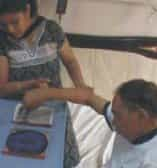 usually begins with a sudden, traumatic blow to the spine that fractures or dislocates vertebrae. The damage begins at the moment of injury when displaced bone fragments, disc material, or ligaments bruise or tear into spinal cord tissue. In India, approximately fifteen lac people live with spinal cord injury.
usually begins with a sudden, traumatic blow to the spine that fractures or dislocates vertebrae. The damage begins at the moment of injury when displaced bone fragments, disc material, or ligaments bruise or tear into spinal cord tissue. In India, approximately fifteen lac people live with spinal cord injury. - Stroke: Stroke or "brain attack" occurs when a blood vessel carrying oxygen and nutrients to the brain is blocked by a clot or bursts, blood clot blocks an artery (a blood vessel that carries blood from the heart to the body) or a blood vessel (a tube through which the blood moves through the body) breaks, interrupting blood flow to an area of the brain.
- Cerebellar Ataxia: Cerebellar Ataxia refers to a condition of unsteadiness of gait. Causes of ataxia are varied. It includes, among others, alcoholism, multiple sclerosis, brain tumors, thyroid disease and genetic abnormalities. It may also result from a viral infection or chicken pox during childhood.
- Head injury
- Mental retardation
- Dementia
- Injuries of the brain and spine due to infections
- Genetic and degenerative neurological disorders
- Motor Neuron Disease
- Multiple Sclerosis
- Neuromuscular disorders
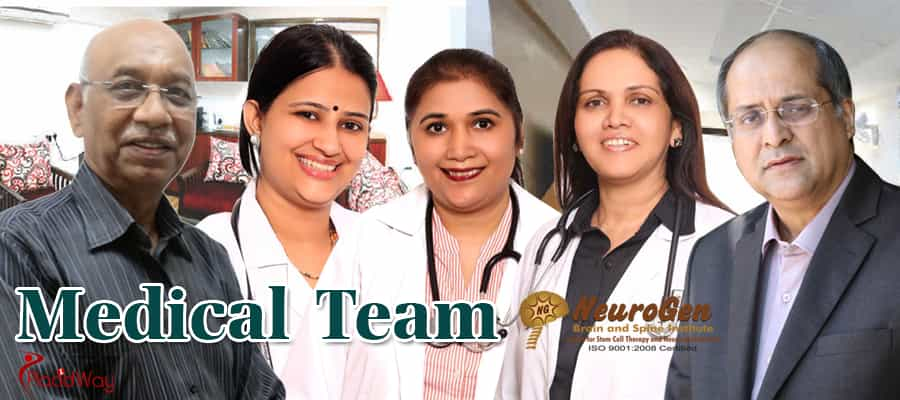
Medical team
The NeuroGen medical panel includes:
- A Medical team (Neurosurgeon, Neurophysician, Pediatric Neurologist, Psychiatrist, Urologist, Andrologist, General physician, General Surgeon, Orthopedic surgeon & Ophalmologist),
- A Basic Science team (Neuropathologist, Microbiologist & Geneticist) and A Rehabilitation team (Physiotherapist, Occupational therapist, Speech therapist & Psychologist)
In addition to medical treatment there is a significant emphasis on both clinical as well as basic research so that the best therapeutic strategies can be evolved and practiced at the same time.
Follow up care
It has been observed that patients who have continued a regular, vigorous and intensive rehabilitation program after the therapy have shown better and sustained clinical improvements. Hence, it is advised to follow the International rule of 6 which says “6 hours of rehabilitation activities per day for 6 days a week for 6 months”.
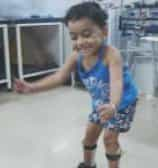 We are happy to communicate with your therapists (telephonically as well as via mail) as to what special therapy you need. We also give you a DVD of all the rehabilitation you have undergone at NeuroGen so that your personal therapist can get a better understanding of your post treatment rehabilitation needs.
We are happy to communicate with your therapists (telephonically as well as via mail) as to what special therapy you need. We also give you a DVD of all the rehabilitation you have undergone at NeuroGen so that your personal therapist can get a better understanding of your post treatment rehabilitation needs.
Follow-Up visits to NeuroGen need to be made at one, three, six months and one year post stem cell therapy when you will be evaluated to check for the improvements. Some investigations such as EMG/NCV, PET CTScan, MRI etc may
have to be repeated during this follow-up period. For patients who stay outside Mumbai the follow-up dates are suitably modified depending on your ability to travel to Mumbai. All follow-ups are to be done with prior appointments only.
For more information about NeuroGen and the treatments offered, please contact us!

NeuroGen Brain and Spine Institute, Mumbai, India Profile Details

About NeuroGen
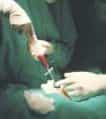 Diseases and injury of the brain and spinal cord produce damage to the nervous system with resultant paralysis/ weakness of limbs, speech / visual & other neurological symptoms. For many such conditions proven interventions do not exist or have been ineffective therefore these patients continue to be symptomatic and suffer severe physical and neurological disability despite all possible medical, surgical and rehabilitation assistance.
Diseases and injury of the brain and spinal cord produce damage to the nervous system with resultant paralysis/ weakness of limbs, speech / visual & other neurological symptoms. For many such conditions proven interventions do not exist or have been ineffective therefore these patients continue to be symptomatic and suffer severe physical and neurological disability despite all possible medical, surgical and rehabilitation assistance.
The NeuroGen Brain & Spine Institute has been set up to help such patients get relief from their symptoms and physical disabilities using the safest and most effective available treatments and technologies from the field of the Neurosciences & Regenerative medicine in a professional & scientific as well as a holistic & caring manner.
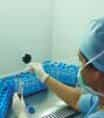 Our strategy is to promote the recovery of neural function with a close integration of Neuro-regenerative (stem cell), Neuro-protective (medications) and Neuro-rehabilitative (physical/occupational/speech) therapies. This therefore combines the best of Neurobiological repair technologies and Neural restorative techniques. We recognize that even small functional gains may have a significant effect on the quality of life of our patients. Our treatment is individualized to the specific requirements of each patient.
Our strategy is to promote the recovery of neural function with a close integration of Neuro-regenerative (stem cell), Neuro-protective (medications) and Neuro-rehabilitative (physical/occupational/speech) therapies. This therefore combines the best of Neurobiological repair technologies and Neural restorative techniques. We recognize that even small functional gains may have a significant effect on the quality of life of our patients. Our treatment is individualized to the specific requirements of each patient.
For more information about NeuroGen and the treatments offered, please contact us!

NeuroGen Brain and Spine Institute Treatments Offered

Treatments Offered
Muscular Dystrophy
The muscular dystrophy is diagnosed by muscle biopsy, DNA testing, electromyogram (E M G) and nerve conduction velocity (N C V). Blood enzyme tests are helpful because degenerating muscle become "leaky". They leak enzymes, which can then be detected in the blood. Presence of these enzymes in the blood at higher than normal levels is a sign of muscular dystrophy. One such enzyme is Creatine kinase, or CK. The CK level is elevated in many forms of muscular dystrophy, some forms resulting in a higher level than others.
There is no specific treatment to cure or halt MD. Physical therapy, exercise, orthopedic appliances (such as braces and wheelchairs), or corrective orthopedic surgery may help to preserve muscle function and prevent joint contractures as much as possible and improve quality of life. Steroids have been used to slow disease progression, but do not affect the final outcome. Identification of the specific genes responsible for the various types of MD has led to extensive research on gene and molecular therapy, but all such treatments are still experimental.
Autism
 There is no specific treatment to cure Autism. But early interventions such as medications (like Seratonin Reuptake Inhibitors), occupational therapy and behavioral therapy reduce the disruptive behavior and provide independence in daily living and improve quality of life.
There is no specific treatment to cure Autism. But early interventions such as medications (like Seratonin Reuptake Inhibitors), occupational therapy and behavioral therapy reduce the disruptive behavior and provide independence in daily living and improve quality of life.
Treatment depends on the need of the patient. In most of the cases combination of treatments is more effective. Usually autism requires a lifelong treatment.
Stem cell therapy has shown promising results for autism.
The stem cells have the ability of angiogenesis which leads to growth of new blood vessels and eventually improves the blood flow and oxygen to the brain which also improves nervous system functioning. They suppress the pathological immune responses (e.g. inflammation) and stimulate haematopoiesis (blood cell regeneration), leading to the possibility that these cells may also be useful for treatment of the defect in T cell numbers associated with autism.
Cerebral Palsy
The signs of cerebral palsy are usually not noticeable in early infancy but become more obvious as the child's nervous system matures. Early signs include the following:
- Delayed milestones such as controlling head, rolling over, reaching with one hand, sitting without support, crawling, or walking.
- Persistence of "infantile" or "primitive" reflexes, which normally disappear 3-6 months after birth
- Developing handedness before age 18 months: This indicates weakness or abnormal muscle tone on one side, which may be an early sign of Cerebral Palsy
Problems and disabilities related to Cerebral Palsy range from very mild to very severe. Their severity is related to the severity of the brain damage. They may be very subtle, noticeable only to medical professionals, or may be obvious to the parents and other caregivers.
Abnormal muscle tone: Muscles may be very stiff (spastic) or unusually relaxedand "floppy"/ Limbs may be held in unusual or awkward positions. For example spastic leg muscles may cause leg to cross in a scissor-like position.
Abnormal movements: Movements may be unusually jerky or abrupt, or slow and writhing. They may appear uncontrolled or without purpose. Their movements are awkward and slow.
Skeletal deformities: People who have Cerebral Palsy on only one side may have shortened limbs on the affected side. If not corrected by surgery or a device, this can lead to tilting of the pelvic bones and scoliosis (curvature of the spine)
Joint contractures: People with Spastic Cerebral Palsy may develop severe stiffness of the joints because of unequal pressures on the joints exerted by muscles of differing tone or strength.

Mental retardation: Some although not all, children with Cerebral Palsy are affected by mental retardation. Generally, the more severe the retardation, the more severe the disability overall. Many of them have squint and drooping lips. Quite often, they are dubbed as dimwits _ though their intelligence level maybe as good as yours or mine.
Seizures: About one third of people with cerebral palsy have seizures. Seizures may appear early in life or years after the brain damage that causes cerebral palsy. The physical signs of a seizure may be partly masked by the abnormal movements of a person with cerebral palsy.
Speech problems: Speech is partly controlled by movements of muscles of the tongue, mouth, and throat. Some individuals with cerebral palsy are unable to control these muscles and thus cannot speak normally.
Swallowing problems: Swallowing is a very complex function that requires precise interaction of many groups of muscles. People with cerebral palsy who are unable to control these muscles will have problems sucking, eating, drinking, and controlling their saliva. They may drool. An even greater risk is aspiration, the inhalation into the lungs of food or fluids from the mouth or nose. This can cause infection or even suffocation.
Hearing loss: Partial hearing loss is not unusual in people with cerebral palsy. The child may not respond to sounds or may have delayed speech.
Vision problems: Three quarters of people with cerebral palsy have strabismus, which is the turning in or out of one eye. This is due to weakness of the muscles that control eye movement. These people are often nearsighted. If not corrected, strabismus can lead to more severe vision problems over time.
Dental problems: People with cerebral palsy tend to have more cavities than usual. This results from both defects in tooth enamel and difficulties brushing the teeth.
Bowel and/or bladder control problems: These are caused by lack of muscle control.
Treatment:
Cerebral Palsy patients can be assisted by Physical therapy, Behavioral therapy, drug therapy and surgical therapy.
Spinal Cord Injury
 Spinal injury is a devastating event that occurs suddenly and whose consequences range from minimal symptomatic pain to a tragic quadriplegia (total paralysis of all four limbs). The key element in management is prevention of secondary neurological damage occurring during transportation, so whenever a family physician sees a patient with suspected spinal injury the first thing to be done is immobilize the spine which is done with cervical collar and belts for thoracic and lumbar spine. Spinal Cord Injury
Spinal injury is a devastating event that occurs suddenly and whose consequences range from minimal symptomatic pain to a tragic quadriplegia (total paralysis of all four limbs). The key element in management is prevention of secondary neurological damage occurring during transportation, so whenever a family physician sees a patient with suspected spinal injury the first thing to be done is immobilize the spine which is done with cervical collar and belts for thoracic and lumbar spine. Spinal Cord Injury
Treatment:
- At the site of accident / clinic of the family physician: mainly deals with immobilization & proper transportation to the hospital.
- In the hospital: Resuscitation, haemodynamic stabilization, basic corrective surgery (if required), physiotherapy.
- Surgeries: basic aims of surgery are decompression of the neural elements, reduction of malalignment and restoration of spinal stability.
- Anterior /posterior
- Decompression / stabilization
Improved emergency care for people with spinal cord injuries and aggressive treatment and rehabilitation can minimize damage to the nervous system and even restore limited abilities. Rehabilitation programs combine physical therapies with skill-building activities and counseling to provide social and emotional support.
Stroke
The key to successful treatment of stroke when it is occurring is getting help as soon as possible. Receiving faster medical care results in a greater chance of recovery and minimizing brain damage. The type of stroke that has occurred, as well as the length of time between when the stroke occurred and treatment is initiated determine which therapies doctors can use. Both factors also impact how effective those treatments are likely to be.
Cerebellar Ataxia
The treatment of cerebellar ataxia remains primarily a neurorehabilitation challenge, employing physical, occupational, speech, and swallowing therapy; adaptive equipment; driver safety training; and nutritional counseling. Modest additional gains are seen with the use of medications that can improve balance, incoordination, or dysarthria.
The area of research that currently holds the most promise is the idea of stem cells. Ethical concerns hold back much of the research on embryonic stem cells, so more focus is on adult stem cells. Stem cells do exist within the adult hippocampus which, given the proper chemical signal, can differentiate into different types of neurons.
Multiple Sclerosis
Treatment involves managing the symptoms of multiple sclerosis as well as treating the disease before permanent damage causes symptoms. Treatment may include medications, physical and occupational therapy and experimental therapies.
Hematopoietic stem cell transplantation has been under investigation as a potential treatment for multiple sclerosis (MS) for over a decade, Multiple Sclerosisand several studies have indicated that this treatment can stabilize neurological disability in patients with this condition. Autologous hematopoietic stem cell transplantation (into the bloodstream) has been tried in clinical trials around the world, to eliminate autoreactive lymphocytes and replace them with self-tolerant ones, thereby 'resetting' the immune system and halting the autoimmune process.
At our centre, intrathecal (into the fluid around the spinal cord and brain) autologous stem cell therapy is being used to address the disability caused as a consequence the disease process. The possibility of stem cell leading to stalling or reversal of disease process is still under evaluation.
- Head injury
- Mental retardation
- Dementia
- Injuries of the brain and spine due to infections
- Genetic and degenerative neurological disorders
- Motor Neuron Disease
- Multiple Sclerosis
- Neuromuscular disorders
For more information about NeuroGen and the treatments offered, please contact us!

NeuroGen Brain and Spine Institute Certificates, Accreditations, Qualifications

Medical team
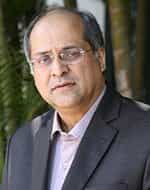 Dr. Alok Sharma
Dr. Alok Sharma
Dr. Alok Sharma, aged 51, obtained his MBBS, M.S. & M.Ch. from Seth G.S. Medical College & KEM Hospital of Mumbai University. He is a Neurosurgeon by profession, Head of Department of Neurosurgery, LTMG Hospital & LTM Medical College in Sion, Mumbai, Consultant neurosurgeon at the Fortis Hospital in Mulund, Mumbai and founder of NGBSI. During his long career, he worked at Karolinska Hospital in Stockholm, Sweden & University of Colorado in
Denver, USA.
He has written/edited 4 books, has over 60 Scientific Publications and over 120 International, national, and zonal presentations.
He is a pioneer in the country in the use of Stem cell therapy for the treatment of incurable neurological disorders & has the experience of treating over 1000 patients with this new form of treatment. He is a staunch believer that stem cell therapy can relieve a lot of human suffering and makes every attempt to popularize this new approach amongst the medical community.
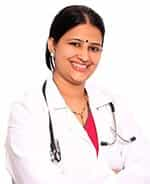 Dr. Nandini Gokulchandran
Dr. Nandini Gokulchandran
Dr. Nandini Gokulchandran, aged 36, is an M.D. in Medical Microbiology & is currently the Head of Medical Services and Clinical Research at NGBSI. She completed her graduate and postgraduate studies from the Government Medical College and Hospital, Nagpur. Subsequently, she did 4 years of post doctoral fellowship in the field of Developmental
Neurobiology and stem cell research at the Tata Institute of Fundamental Research, Mumbai.
She brings to NGBSI an astute amalgamation of medical/clinical background with deep faith in and understanding of stem cell research & regenerative medicine.
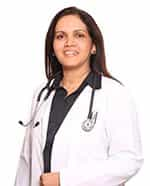 Dr. Prerna B Badhe
Dr. Prerna B Badhe
Dr. Prerna B Badhe is an MBBS & MD in Pathology & is currently the Neuropathologist at NGBSI. She specialized in Neuropathology at KEM Hospital & NIMHANS Bangalore. She was Associate Professor in the Dept. of Neuropathology at KEM till 1997. She has taken advanced training at NIH Baltimore for Neuropathology and Stem Cell Development. She has been a visiting Neuropathologist at Leed’s General Infirmary, UK. She has many national and international publications and presentations to her credit. Dr. Prerna B Badhe is also associated with the Dept. of Neurosurgery, Sion for Autologous Stem Cell therapy in Spinal Cord injury patients. She has been a consulting pathologist since 1997.
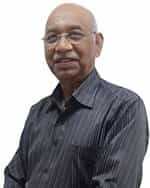 Dr. V.C. Jacob
Dr. V.C. Jacob
Dr. VC Jacob, aged 71, is a D.Pt & is the Deputy Director of NGBSI & Head- NeuroRehabilitation. He is a trustee of Nina Foundation, an NGO set up for the rehabilitation of Spinal Cord injury patients. He has been a physiotherapist at LTMG Hospital, Sion for 35 years. He was part of the Executive Committee of the Paraplegic Foundation for 38 years. He has held the post of Presidentship of the Indian Association of Physiotherapists.
He is a founder member of NeuroGen and is responsible for the overall rehabilitation of all the patients that come to NG.
Dr. Hema Biju
Dr. Hema Biju, aged 38, is M.Oth (Neuro) and the Head of Occupational Therapy at NeuroGen. With over 17 years of national & international experience in varied fields of OT, she has specialized in Neurological rehabilitation. She has been a registered and licensed occupational therapist in the USA. She is currently associated as a consultant with numerous hospitals in Mumbai.
Since 2002, along with her professional career, she has also been continuing her pursuit in the field of academics & research.
For more information about NeuroGen and the treatments offered, please contact us!

NeuroGen Brain and Spine Institute Testimonials
NeuroGen Brain and Spine Institute Awards & Recognitions

Awards & Accreditations
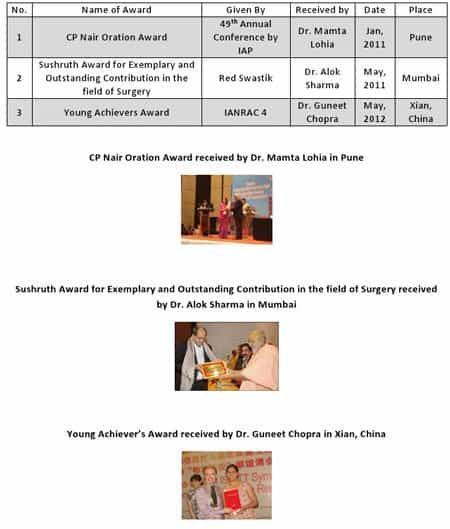
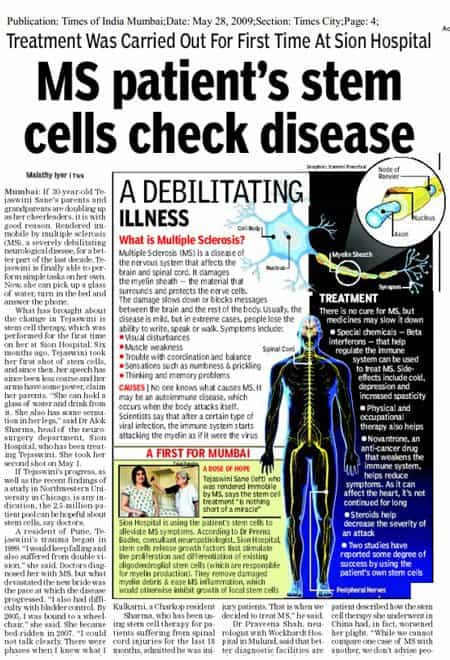
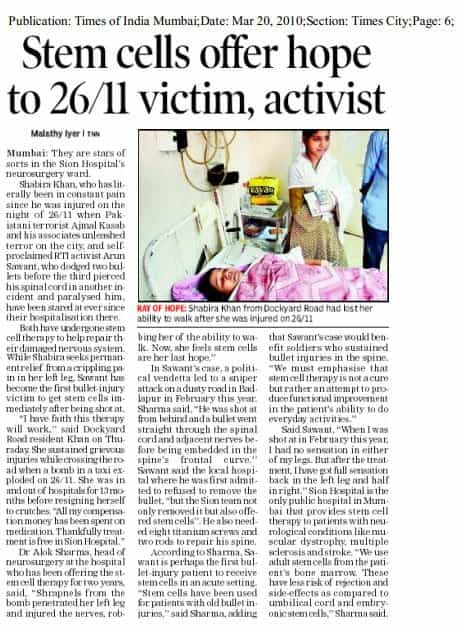
Significant improvement in an autistic boy post stem cell therapy on 6 months follow up
- His hyperactivity has stalled up to 80 % but previously his hyperactivity would be reduced during the day but in the evenings he used to get hyperactive which is no longer present.
- Prior to stem cells, the commands needed to be repeated slowly but now he understands and follows it easily.
- Previously he would laugh without any reason but now it has reduced. Now even if he does then he is able to specify the reason why he is laughing.
- His level of understanding has improved.
- His speech has improved i.e. now he uses bi-syllables.
- Previously he needed someone to hold his hand while writing where as now he just needs someone to touch his hand.
- His sitting tolerance has improved.
- He would avoid being in a social situation and would prefer sitting at the window alone whereas now he sits in the group and tries interacting.
-Akshata Shetty
Clinical Psychologist
Certifications
The NeuroGen Brain and Spine Institute where NRRT protocol is provided is ISO 9001-2008 certified. With the team of committed Neurosurgeons, Health care professionals, Rehabilitation therapists, Research scientists and staff it is constantly thriving on it to give the best health care for people with incurable/intractable neurological disorders.
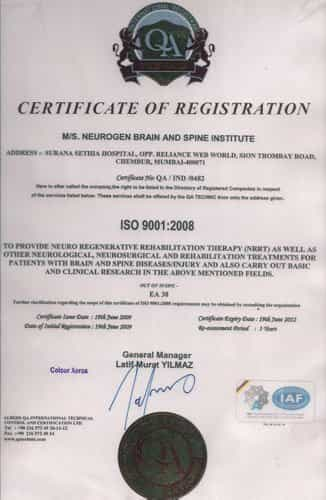
For more information about NeuroGen and the treatments offered, please contact us!






